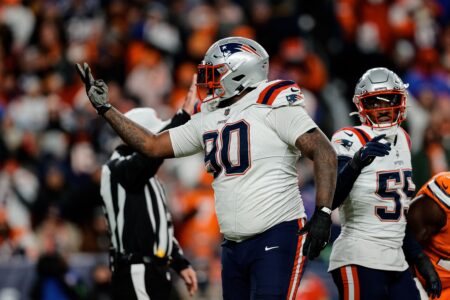mgcolby
Woohoo, I'm a VIP!!!
PatsFans.com Supporter
2021 Weekly Picks Winner
2022 Weekly Picks Winner
2023 Casino Champ
- Joined
- Jan 25, 2005
- Messages
- 10,570
- Reaction score
- 6,582
I am trying to understand your analysis. It sounds like the entire fourth quarter is garbage time if we are leading by two scores. What happens if the opponent comes within one score after we have been leading by two scores in the fourth quarter? Is the previous garbage time voided? Or is the garbage time over and non-garbage time start? Has this situation never arisen?
Also as someone pointed out, you cannot deduct the garbage time points entirely. You would have to include the points that would be allowed had the defense played the same way in garbage time as in non-garbage time. One way to do this would be to figure out the points per unit time by the opponents during non-garbage time and use that to estimate what the points in garbage time would have been.
But all this aside, one has to ask why in principle we would like to allow more points in garbage time? Naively, one would think that it is more beneficial to stop them from scoring rather than to allow them to score in such a situation. On the other hand, if indeed there is such a principle, I would have to think it would be to have the opponent run out of time by allowing them to move but take time off the clock. Since you have the raw data, I would be much more curious to see what the time taken per point scored by the opponent is during garbage time as opposed to out of it. If they are scoring at a faster clip during garbage time then I would have to say that the defense is not doing well.
I only counted the drives during the 4th quarter in which the Pats opponents start the drive 9+ points behind. Let's say the Jets started the first drive of the 4th quarter down 28-17 and went down the field and scored. That drive counted in my compilation. Now if they start their second drive still down 28-24 that second drive is not included.
Similiar situations occured during the Jets and Chargers games.
















